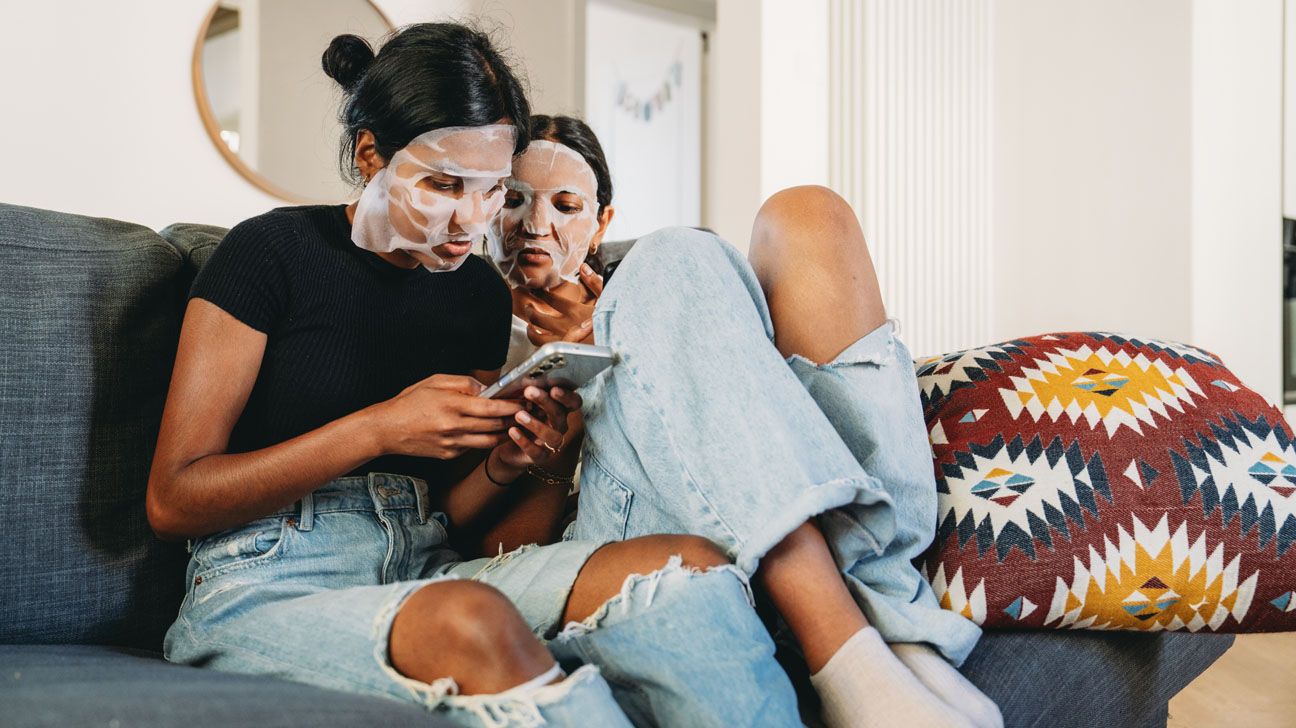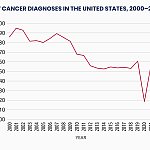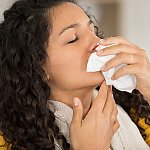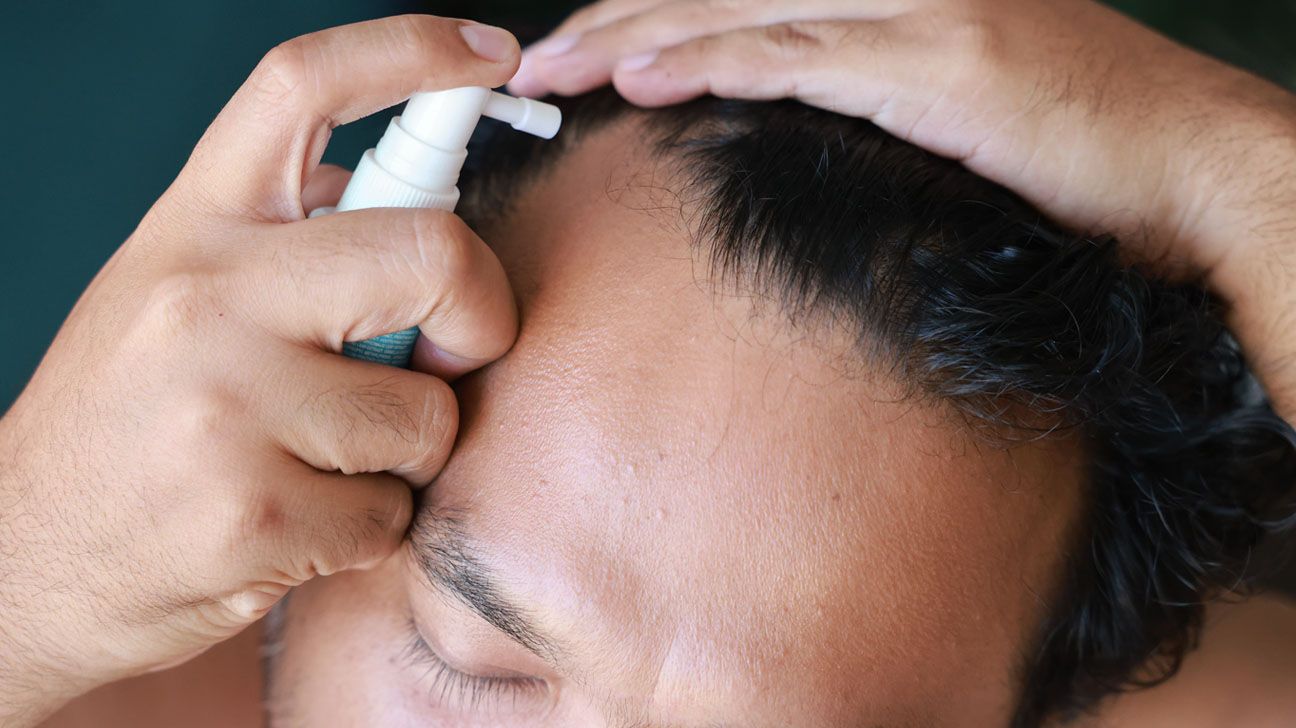
The “Get Ready With Me” (#GRWM) trend on social media platforms like TikTok and Instagram is wildly popular among pre-teen and adolescent girls.
In these videos, young content creators demonstrate their skin care and makeup routines for captive audiences to absorb tips and tricks like a sponge. As with many social media trends perpetuated by algorithms catering to the interests of young, vulnerable minds, some #GRWM hacks may do more harm than good.
In a first-of-its-kind study, Northwestern Medicine researchers examined the potential risks associated with skin care routines shared on TikTok by teenage girls.
To do this, researchers created two undercover TikTok profiles, each claiming to be 13 years old.
After analyzing 100 unique videos generated in their “For You” tab based on their reported interests, the researchers determined that young girls ages 7 to 18 use an average of six different skin care products on their faces. Some girls, they found, use more than a dozen products in their routines.
According to the researchers, the skin care products included in the analysis were marketed toward younger audiences. The products are also expensive, averaging around $168 per monthly regimen and as high as $500 or more.
Using the Pediatric Baseline Series patch test, the researchers also found that the most-viewed videos had an average of 11 active ingredients known to raise the risk of skin allergy and irritation. The videos also emphasized “lighter and brighter skin,” and only 26% mentioned sunscreen use.
TikTok’s platform is intended for users ages 13 and older, but the study suggests some content creators may have been as young as 7.
The researchers told Healthline that some influencers disclosed their age in their videos. For those who didn’t, ages were determined based on content shared in the video that may pertain to their age, such as a birthday or another event (i.e., “GRWM for the first day of 6th grade!”) and any relevant hashtag (#highschool or #freshman).
The researchers did not examine skin care routines on other social media platforms, which warrants further study. The authors also acknowledge the limited sample size, and the mental health implications were not evaluated, only inferred.
“This type of content is common across all media, and the authors admit they did not assess its impact on teen well-being. However, they did find actual benefits to teen self-expression, parent-teen bonding, and building a supportive community on TikTok,” a TikTok spokesperson told Healthline by email.
Still, experts say the findings, published on June 9 in the journal Pediatrics, are concerning and outweigh any positive benefits.
“As a dermatologist and a mom of four, I was concerned about the kinds of messages that young teens are getting about skin and skin care on social media,” said corresponding author Molly Hales, MD, PhD, a postdoctoral research fellow and board certified dermatologist in the department of dermatology at Northwestern University Feinberg School of Medicine.
“The only product I regularly recommend for kids without specific skin problems is sunscreen. Worse, it seemed like teens were starting to think that they needed to use tons of products for their skin to be healthy,” Hales told Healthline.
The researchers collected TikTok skin care videos between April 1 and May 15, 2024. They found that the high risk of skin irritation and allergy was linked to content creators using multiple active ingredients simultaneously.
Active ingredients like hydroxy acids may be especially harmful to young, developing skin and may cause allergic contact dermatitis, a reaction which could lead to long-term skin sensitivities.
“The skin care products and regimens being used in the videos have dermatologic risks (irritation, allergy, and sun sensitivity), and set an unrealistic standard of beauty that is promoted as ‘health,’” Hales said.
Daniel Ganjian, MD, FAAP, board certified pediatrician at Providence Saint John’s Health Center in Santa Monica, CA, cited several reasons for young people to avoid using products with certain active ingredients (Ganjian wasn’t involved in the study):
Ganjian told Healthline that chronic skin allergies caused by skin care products may range in severity, but in some cases, can be serious. Common symptoms of a reaction may include:
“In severe cases, allergic reactions can impact a person’s quality of life significantly, leading to discomfort, sleep disturbances, and self-consciousness,” Ganjian said.
“While rare for topical products, extremely severe reactions like anaphylaxis (a life threatening whole-body allergic reaction) are possible with some allergens, though this is more commonly associated with food or insect stings.”
Many of the TikTok videos analyzed by the researchers emphasized “lighter, brighter skin” as a picture of health.
In one video, an influencer applied 10 products to her face in just six minutes to achieve this effect.
“As she’s applying the products, she begins to express discomfort and burning, and in the final few minutes, she develops a visible skin reaction,” said senior author Tara Lagu, MD, MPH, adjunct lecturer of medicine and medical social sciences at Feinberg and a former Northwestern Medicine hospitalist, in a news release.
“We saw that there was preferential, encoded racial language in some cases that really emphasized lighter, brighter skin. I think there also were real associations between use of these regimens and consumerism,” Lagu continued.
Lagu and Hales concluded that the content they examined offered little to no benefit for the young demographics they’re targeting, and that the potential harms extend beyond the risk of skin damage.
“It’s problematic to show girls devoting this much time and attention to their skin,” Hales said in a news release. “We’re setting a very high standard for these girls.”
The researchers’ estimates for the high monthly costs of skin care regimens touted by young content creators are likely out of reach for the average young person. It’s unknown how the young influencers paid for the products.
“We were disturbed at the high cost of some of the most common products used in the videos, most of which offer little to no benefit to the young teens and pre-teens who were shown using them,” Hales said.
“It makes me wonder about the many girls whose families can’t afford to spend $68 on a moisturizer, and whether they think that their skin is somehow less healthy as a result.”
What’s more, skin care content promoting unrealistic beauty standards may cause mental health harm during adolescence, when young people are developing their sense of self.
“Constant external validation sought through appearance can hinder the development of a healthy, authentic identity based on internal qualities and values,” Ganjian noted.
These impacts may include:
“True beauty encompasses overall health, confidence, and internal qualities,” Ganjian continued.
“Chasing unrealistic beauty ideals perpetuated online can be detrimental to mental well-being. Be highly skeptical of skin care content on social media platforms like TikTok. Understand that much of it is marketing-driven, often promotes unrealistic beauty standards, and may feature digitally altered images,” he said.
Hales echoed this sentiment. “I’m concerned about problematic and unrealistic beauty standards being passed off as skin ‘health’ or ‘care,’ and potentially exposing young people to skin irritation, allergy, and sun sensitivity,” Hales said.
“For parents whose kids are already expressing an interest in skin care or starting to purchase and use these products, I would encourage them to help their child select products with a minimum of active ingredients, such as hydroxy acids, which can be irritating and can make you more sensitive to the sun,” she added.
Dermatologists and health professionals recommend keeping skin care routines simple, consistent, and gentle.
“Less is more with skin care,” Ganjian said. Many popular products promoted online contain ingredients that are too harsh for young skin and can lead to chronic allergies or other skin issues.”
Ganjian shared some basic tips:
“Young skin is naturally healthy and doesn’t require complex or expensive routines. A simple routine of gentle cleansing, moisturizing, and sun protection is usually sufficient,” Ganjian said.
“If there are genuine skin concerns like persistent acne, a dermatologist is the best resource for personalized, safe, and effective advice, rather than relying on social media trends.”





